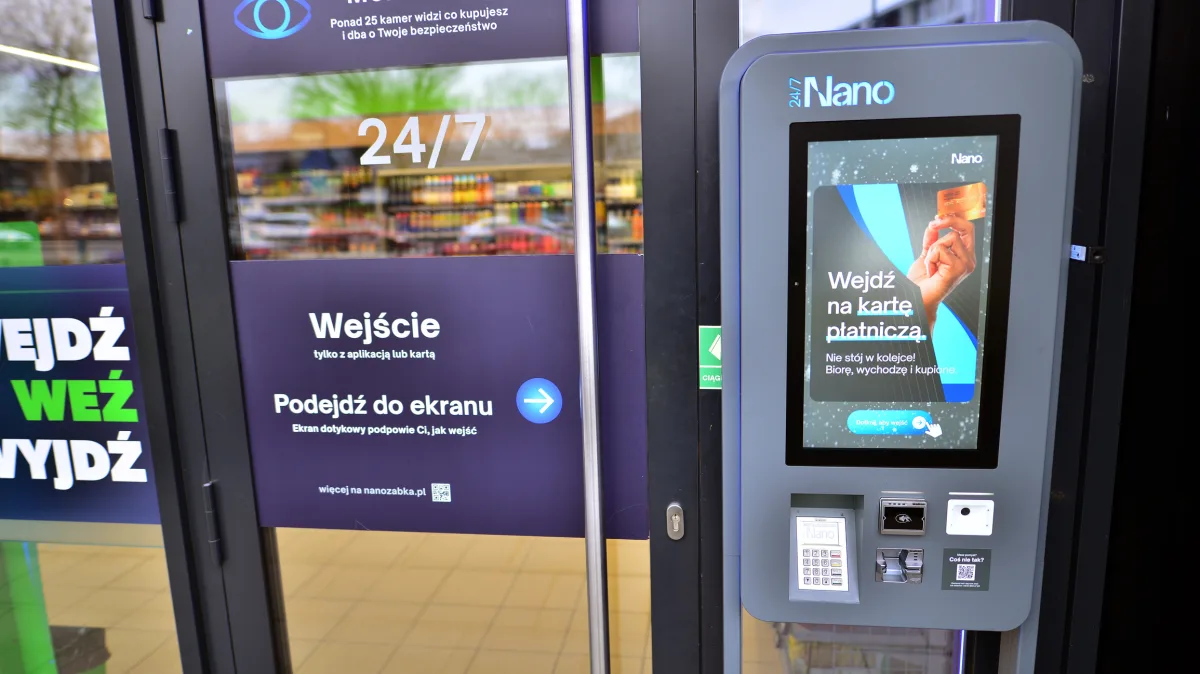Across Central and Eastern Europe, annual reports are full of the same vocabulary. Transformation. Disruption. Innovation. Companies talk about ecosystems, platforms, AI adoption, and digital-first strategies. It sounds impressive.
But step back, and you notice something missing. For all the glossy narratives, many of these firms are innovating at the edges without reinventing at the core.
Take Żabka as an example. On paper, it looks like a model of modern retail. The group talks about nano-stores, which I tried out for the first time just last week, AI-powered logistics, digital ecosystems, and circular packaging initiatives. It positions itself as a business alive to megatrends, agile in execution, relentless in innovation.
And yet—walk into a typical store, and what dominates the shelves? Energy drinks, sugary snacks, ultra-processed ‘quick fixes’. The technology may be new, the language may be futuristic, but the underlying model is largely the same: selling more of the same products, more efficiently, to more people.
This is where the distinction matters. Innovation makes what you already do faster, smarter, more convenient. Reinvention asks whether what you do still makes sense in the first place.
The capacity for reinvention
Installing self-service nano-stores is innovation. Using AI to optimise deliveries is innovation. But neither forces the bigger conversation: What role should a convenience retail giant play in shaping healthier, more sustainable consumer behaviour?
And Żabka is not alone. Across the region, we see banks that digitise customer journeys but continue to reward short-term speculation over long-term resilience. Manufacturers that showcase energy-efficiency upgrades while relying on carbon-heavy supply chains. Tech firms that churn out apps without asking whether they genuinely solve meaningful problems.
The pattern is the same: innovation is celebrated because it is safe. It doesn’t question the business model. It doesn’t require letting go of revenue streams that still work. It allows leaders to showcase progress without confronting uncomfortable trade-offs. Reinvention, by contrast, is harder. It demands honesty about what no longer serves. It requires decisions that may hurt in the short term but create resilience in the long term.
The irony is that the capacity for reinvention already exists. Żabka’s 11,000+ outlets could become hubs for healthier eating and community services. Regional banks could reposition themselves as stewards of financial resilience, not just lenders. Industrial firms could lead in circular manufacturing rather than shaving percentages off their emissions. These aren’t radical ideas—they are natural evolutions of what these companies already do. But they require the willingness to stop clinging to the old growth logic.
Confronting the harder truths
That’s the missing piece in much of the corporate narrative. Annual reports demonstrate how well companies can optimise. But they rarely reveal whether leaders are ready to confront the harder truth: the market is changing not only in how it buys, but in what it values.
Consumers across Central and Eastern Europe are becoming more health-conscious, more climate-aware, more demanding of transparency. Governments are raising regulatory pressure on everything from plastics to energy. Investors are no longer satisfied with greenwashing—they want to see purpose backed by numbers. Innovation can respond to these shifts. Reinvention anticipates them.
The future of business in this region will not be won by whoever automates fastest. It will be won by whoever rethinks purpose soonest. Innovation is useful. Reinvention is essential.
Because in the end, technology without transformation is theatre. And theatre may impress the market for a quarter or two. But it doesn’t build the future.
Photo: Dreamstime.







